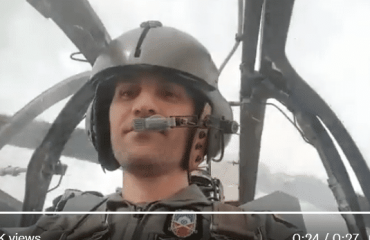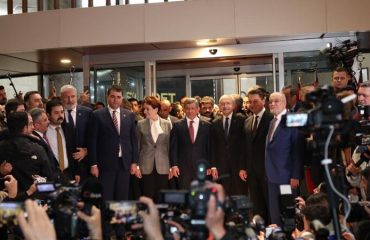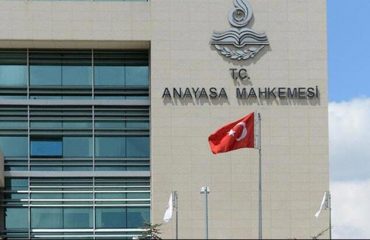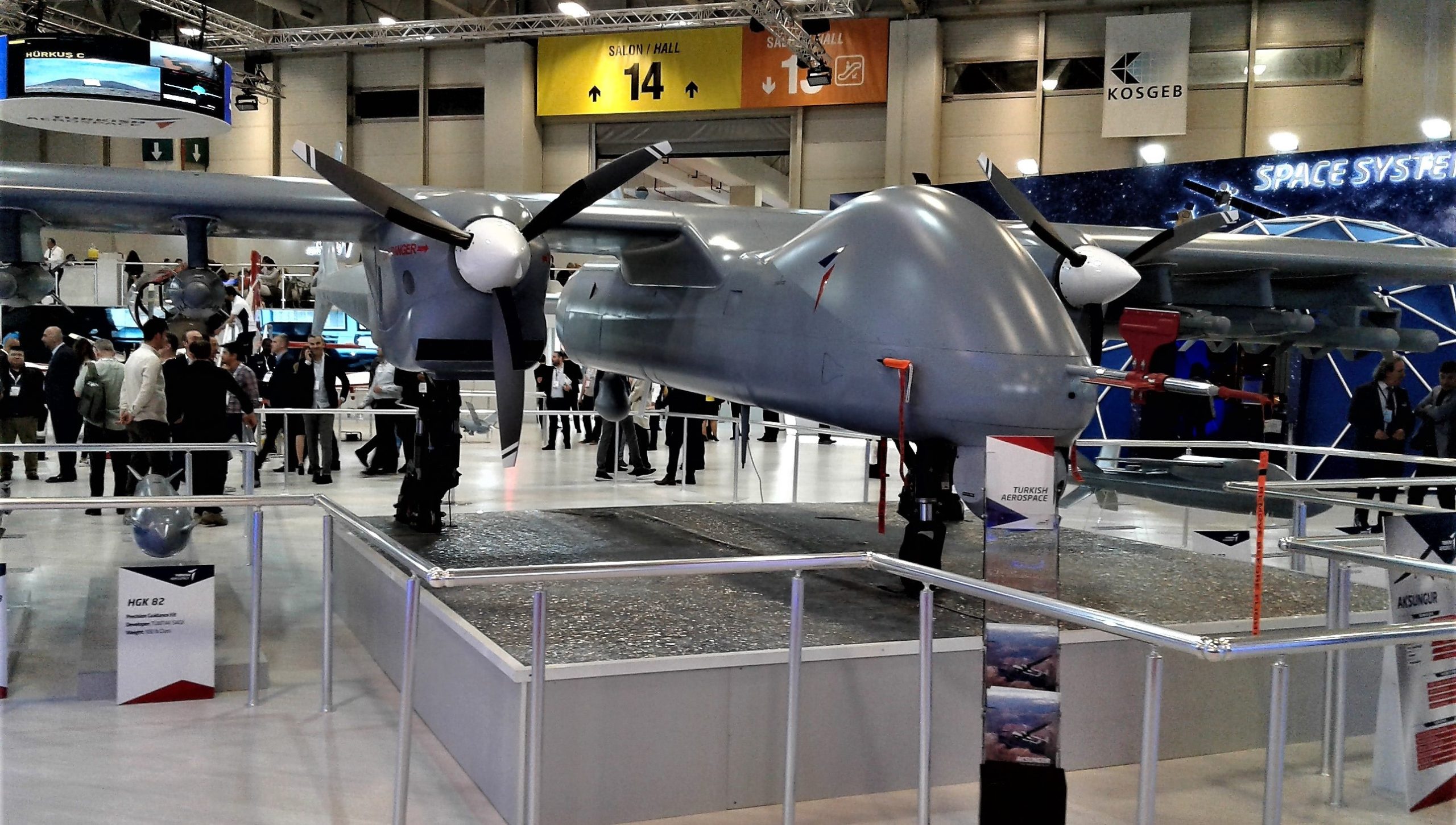
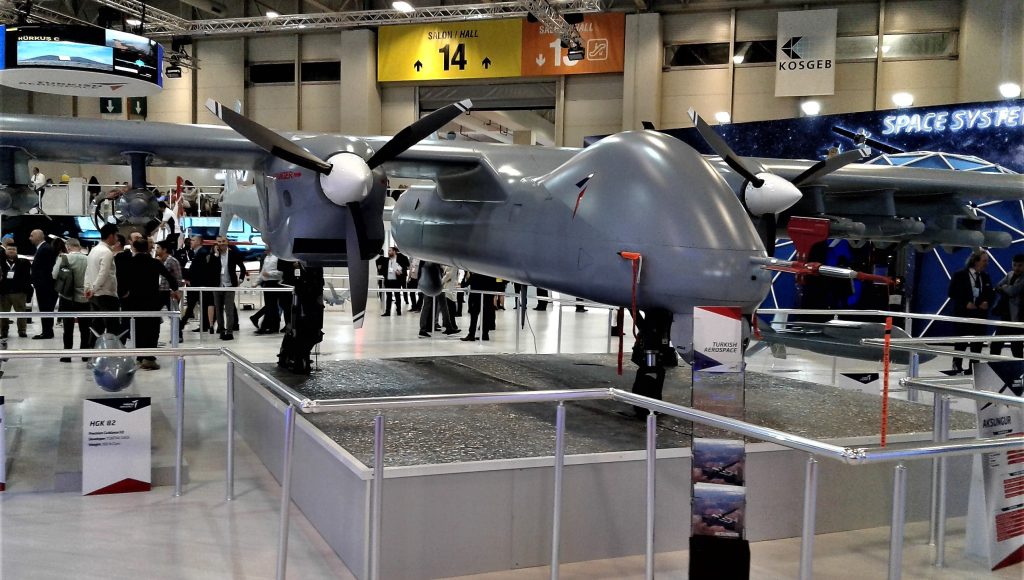
One benefit of US sanctions policies for Türkiye was that it focused on its own defense industry projects. The photo shows the Aksungur drone, which is produced at TUSAŞ and also exported. (Foto: Tusaş)
As far as we know, the first military sanctions applied by the US to Türkiye began on December 11, 1974. The apparent reason was the Cyprus operation on July 20, 1974. The real reason was different.
The main reason for the US Congress’s decision to cut off military weapons and equipment sales to Türkiye was that the incumbent Bülent Ecevit-Necmettin Erbakan (CHP-MSP) coalition lifted the poppy cultivation ban introduced by Nihat Erim’s “technocrat” government, which was established by the military administration’s preference after the March 12, 1971 coup. The Americans were billing the Turkish farmers for their own children’s drug habits.
While writing the book “Coups for the Curious,” I better understood that among the issues Süleyman Demirel, who was forced to resign with the March 12 Memorandum, had disagreements with the US was his opposition to the demand for a poppy ban. It’s now more or less known that the number one decision of the September 12, 1980 military coup was to approve Greece’s return to NATO’s military wing – which it had left after the Cyprus intervention – in line with the US request. But it’s not widely known that one of the first decisions of the March 12 government was to impose a poppy ban.
Thanks to US sanctions policy
The US had actually stopped weapon shipments when the Cyprus operation began. The air force, in particular, was in a very difficult situation.
Do you know what the result was of this comprehensive sanctions implementation by the US, aimed at bringing its ally, who was holding NATO’s Southern Flank against the Soviet Union, to its knees over poppy cultivation?
It was Türkiye’s reawakening to establish its own defense industry – after the founding period of the Republic.
Even the simplest walkie-talkie was being bought from the US. They started with the Military Electronic Industry, ASELSAN. TUSAŞ, which had been established earlier but wasn’t doing anything, was revitalized. The start of F-16 production in Türkiye during the Turgut Özal period was thanks to that infrastructure. Private initiatives like Nurol and Otokar began producing armored vehicles.
In the early 2000s, the US Congress didn’t give permission to sell 2 (in words, two) Predator UAVs to Türkiye for use in the fight against the PKK. As a result, Türkiye now produces its own drones both in the public sector through TUSAŞ and in the private sector through Baykar and other companies, and uses electronic warfare equipment manufactured by Aselsan and Havelsan, along with ammunition produced by Roketsan; it also sells these abroad.
Iran and Russia sanctions
The US sanctions policy has been in effect against Iran since the 1979 Islamic Revolution; that’s 40 years, easy to say. It’s true that Iran isn’t where it deserves to be, primarily due to its own administrative weaknesses, but also because of this sanctions policy. Well, did this situation lead Iran to give up? On the other hand, Iran still continues to sell oil to industrial giants like Japan, China, and India, because there’s a need. Well, how does Iran still fly American planes that remained from before the revolution, with what spare parts? Have you ever thought about it?
The black market and subsidiary industry production don’t recognize sanctions.
Sanctions against Russia, which began with its occupation of Crimea in 2014, expanded with its all-out attack on Ukraine in 2022; it included not only the US but also the European Union. Russia’s money in banks in the US and EU countries was confiscated and transferred to Western European arms companies, primarily in the US and some in the UK and France, on the grounds of purchasing weapons to be sent to Ukraine.
But this sanction has pushed Russia and countries buying oil and gas from Russia to seek new alternatives.
China, India, and the EU
Russia is building a second oil and gas pipeline project to China through Mongolia – in a geography where it’s very difficult for the US to physically reach.
For those who might say Russia and China are already in the anti-US camp, let’s give the example of India. Let’s give the example of the 7,200-kilometer International North-South Transport Corridor (INSTC) that starts from Mumbai port in India, connects to the railway at Iran’s Bandar Abbas port, and reaches Moscow and Russia’s Baltic coast port of St. Petersburg via Azerbaijan’s capital Baku. It reduces cargo transportation, which takes 45 days via the Red Sea, Mediterranean, Atlantic, and North Sea, to less than half the time.
In other words, despite outdated sanctions policies, water finds its way.
There’s one more point. The ones who suffer the most from the sanctions policy against Russia are the EU countries, especially Germany. For this reason, they started looking for other sources instead of natural gas coming from Russia through Nord Stream, and they locked down their investments in Germany, especially in the automotive sector.
I think they’ve already woken up to the situation, but they’re not speaking out yet.
